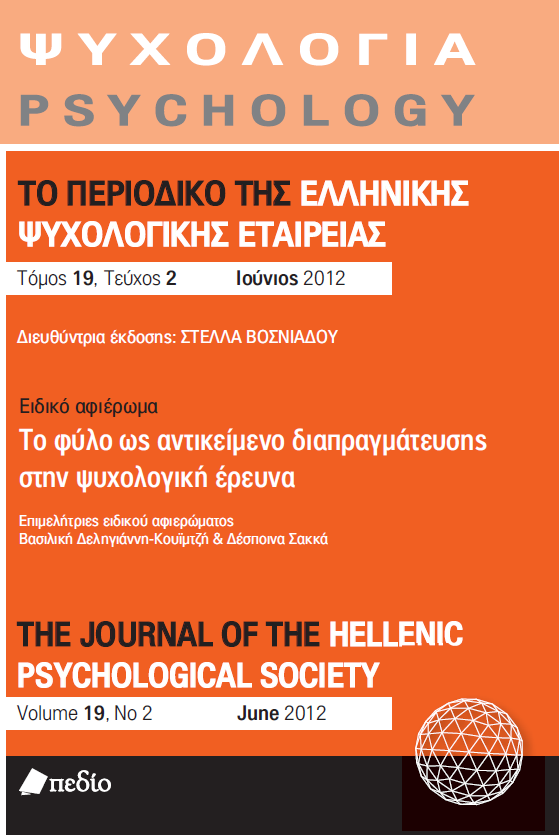“If I was unemployed and single, I would be nothing…”: Gendered negotiations of unemployment

Abstract
This study investigates the ways in which unemployed married women talk about and justify their unemployment status in relation to the construction of gendered identities. It focuses on the analysis of the “interpretative repertories” which women use and their consequences on the negotiation of their female identity within the particular family and work framework. Semi-structured interviews were conducted and the analysis was based on the principles of discourse analysis within the framework of feminist perspectives. It was found that women construct and arrange their occupational practices and choices relying primarily on traditional beliefs and assumptions about female participation in the labour market. Gender and marital status are used in order to justify
unemployment since the later is being described as a “natural” situation, especially for married women. Participants construct a context where there are no supportive mechanisms for married unemployed women
and their needs for employment are not taken into serious consideration. Findings further show that married women are confronted with personal conflicts as well as stereotypical socio-cultural expectations and constructions of female unemployment. Within this context, they seem to finally accept the dominant discourses about the traditional gendered division of work and family roles.
Article Details
- How to Cite
-
Τάζογλου Ε., & Δεληγιάννη - Κουϊμτζή Β. (2020). “If I was unemployed and single, I would be nothing…”: Gendered negotiations of unemployment. Psychology: The Journal of the Hellenic Psychological Society, 19(2), 175–192. https://doi.org/10.12681/psy_hps.23615
- Issue
- Vol. 19 No. 2 (2012)
- Section
- SPECIAL SECTION

This work is licensed under a Creative Commons Attribution-ShareAlike 4.0 International License.
The journal PSYCHOLOGY adopts a Platinum open-access policy. Submission, processing or publication costs are waived by the Hellenic Psychological Society. Papers published in the journal PSYCHOLOGY are licensed under a 'Creative Commons Attribution-ShareAlike 4.0 International' licence. The authors reserve the copyright of their work and grant the journal the right of its first publication. Third-party licensees are allowed to use the published paper immediately after publication as they wish, provided they retain the defined by the license copyright formalities, regarding the reference to its author(s) and its initial publication in the journal PSYCHOLOGY. Moreover, any adjusted work should be shared under the same reuse rights, so with the same CC license.


